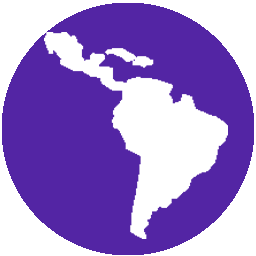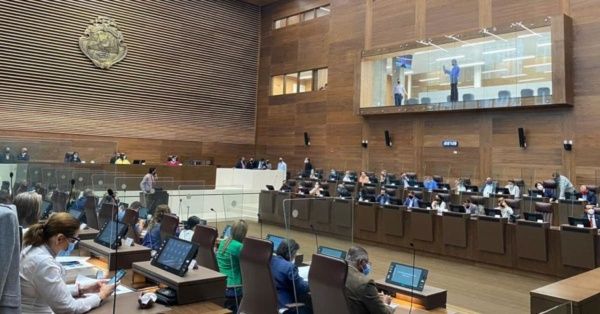
Rest of Latin America
Impact | Positive
CIVICUS Rating | Limited
Towards the end of April, the Legislative Assembly of Costa Rica passed a general law on access to public information and transparency. The right of access to public information is now enshrined in law across the entire region except for in Bolivia, Cuba and Venezuela. However, there has been some slippage in this respect amid the pandemic.
What does the law in Costa Rica stipulate? First of all, it recognizes the right of every person – whether natural or legal – to request and be able to access public information free of charge. All public administration bodies are obliged to make requested information available, as are any companies tasked with managing public funds, goods or services. The law does not, however, apply to the legislature and judiciary.
Publicly accessible information includes all documents of a public nature in the possession of these bodies, with the exception of those declared to be State secrets or whose publication could undermine security, among other exemptions. It should be noted that the exceptions provided for by the law were partially vetoed by the Executive Branch – namely the ones corresponding to personal data or data collected to prevent or investigate crimes.
For his part, President Alvarado has vetoed on the grounds of unconstitutionality paragraphs d) and k) which also establish limits to access to public information, although in both cases referred to investigations on criminal, administrative and disciplinary offenses, or proceedings in progress. The President’s Office argued that, in its current wording, the exercise of freedom of the press, contemplated in Article 29 of the National Constitution, is violated. For example, if an official is being investigated in a disciplinary proceeding and the press considers it in its interest to make it known, it would not be able to do so, according to the veto.
The law does not explicitly prohibit requiring the applicant to justify the reason for the request, however, it is not among the requirements that the request must meet. On the other hand, the denial of information must be justified. Regarding the format in which the information must be published, the law does not oblige the state entities to do so in digital format, however, if the information is requested in electronic or open format, it must be provided in that way.
A bill that is being processed in parallel and already has a committee opinion adds to these obligations the obligation to proactively publish annual reports, internal investigations, audits, budget execution and current salary scales on the web page of each institution.
How is the rest of the region doing? Almost all Latin American countries recognize by law the right of citizens to request and access public information. The issue was placed on the regional legislative agenda in the early 2000s with the enactment of laws in Mexico, Panama (2002), Peru (2003), Ecuador, Dominican Republic (2004), Chile, Uruguay and Guatemala (2008). Since 2011 it was reactivated again with the laws of Brazil, El Salvador (2011), Colombia, Paraguay, Guyana (2014) and Argentina (2016). However, there are countries that still do not have a framework law that comprehensively guarantees this basic right (including Bolivia, Venezuela and Cuba) and others where there have been setbacks, especially since the beginning of the pandemic.
In September 2021, the Venezuelan National Assembly passed a Law on Transparency and Access to Information of Public Interest. However, this law does not meet some minimum standards: it does not establish that the confidentiality of information should be the exception; it does not promote active transparency, either through the publication of data in open access formats or the definition of the minimum information to be disseminated by public entities; it does not contemplate the creation of a guarantor body; and it does not establish a scheme of sanctions for non-compliance, among others. In addition, the Anti-Blocking Law remains in force, which enables the discretionary classification of public documents for reasons of “national interest”. Meanwhile, in Bolivia, the bills that seek to regulate access to public information have not had any movement.
On the other hand, worrying signs of regression have been detected in several countries of the region. One of the most worrisome cases is El Salvador, where a reform to the law on access to public information is being discussed to expand the government’s capacity to classify information that until now the agencies are obliged to provide, to bureaucratize the request process and to reduce the autonomy of the guarantor body. In Mexico, President Andrés Manuel López Obrador has also repeatedly expressed his intention to eliminate the Institute for Access to Public Information as a decentralized agency and create in its place a secretariat under the Executive Branch. However, this would require a constitutional reform that for now does not seem to be politically feasible. It also failed in its attempt to declare public works to be of public interest and of national security, which in practice would enable the Executive to legally deny information.
These experiences remind us that the law is a necessary but not sufficient milestone on the road to the construction of a political and institutional culture of transparency, and that it is the pillars of that culture that are being questioned today.


